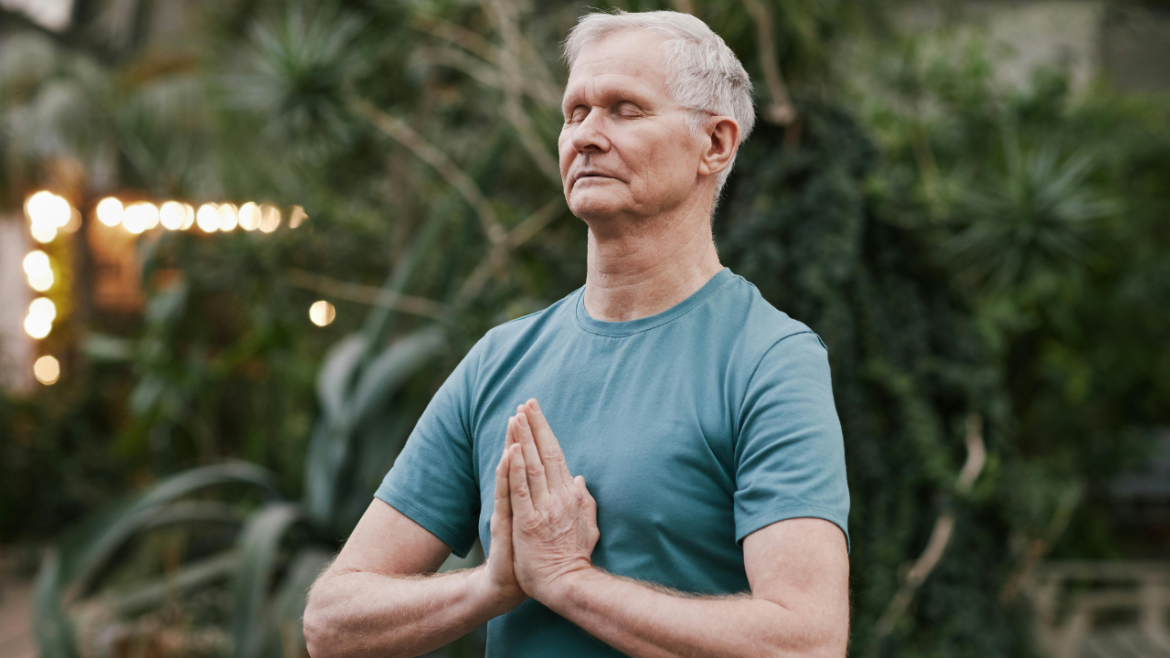The Benefits Of Seniors Doing Tai Chi
In a world that often moves too fast, Tai Chi offers seniors a beautiful invitation to slow down and reconnect with themselves. Rooted in ancient Chinese tradition, this gentle form of movement blends balance, mindfulness, and grace into a single practice that nurtures both body and mind.
For seniors, Tai Chi is more than exercise—it is a pathway to peace, confidence, and renewed vitality. Each slow and deliberate motion carries meaning, teaching patience and awareness while restoring a sense of harmony that can often fade with age.
A Gentle Movement That Strengthens The Body
Tai Chi is often called “meditation in motion,” but its physical benefits are far from passive. Every movement in Tai Chi engages muscles in subtle but profound ways, building strength without strain. For seniors, whose joints and bones may no longer tolerate high-impact activities, Tai Chi offers a safe and effective alternative that promotes endurance, flexibility, and balance.
The controlled motions challenge stability and coordination, helping seniors regain confidence in their physical abilities. Each session teaches the body to move with intention, training the muscles to work in unison rather than opposition. This improves posture and reduces the risk of falls—a major concern among aging adults. With regular practice, even those who once struggled to maintain balance begin to notice a remarkable transformation. Their steps feel surer, their body feels lighter, and their movements flow more freely.
As circulation improves, oxygen flows more efficiently throughout the body, energizing muscles and supporting heart health. Over time, Tai Chi gently lowers blood pressure and eases tension in the joints. Seniors often find that stiffness melts away, replaced by a graceful ease that makes everyday movements—walking, reaching, standing—feel more natural and controlled.
Healing The Mind Through Mindful Motion
Beyond its physical benefits, Tai Chi offers profound effects on mental and emotional well-being. The practice centers around mindfulness, encouraging practitioners to stay present in each movement, each breath, and each thought. For seniors coping with the stress of aging, loss, or health challenges, this focus on awareness brings relief from anxiety and restlessness.
As the body moves in rhythm, the mind begins to quiet. The gentle repetition of motions creates a meditative state where worries fade and peace takes their place. Studies have shown that Tai Chi can help reduce symptoms of depression, sharpen concentration, and even enhance memory. Seniors who practice regularly often describe feeling more centered and emotionally balanced, their minds less clouded by stress or fatigue.
This connection between body and mind is particularly important for those experiencing cognitive decline or early stages of dementia. The structure and repetition of Tai Chi help reinforce patterns of movement and awareness, promoting both neurological activity and mental clarity. It becomes more than a physical exercise—it becomes a tool for maintaining identity, focus, and emotional grounding.
The Emotional Comfort Of Community
While Tai Chi can be practiced alone, many seniors find comfort and motivation in group settings. Moving in unison with others creates a powerful sense of belonging. The shared experience of breathing and flowing together fosters emotional connection and companionship, especially for seniors who may struggle with isolation or loneliness.
Social interaction plays a vital role in mental health, and Tai Chi naturally cultivates it through quiet connection rather than competition. The environment is peaceful, inclusive, and accepting. Everyone moves at their own pace, without judgment or pressure. Over time, these shared sessions form a small community built on encouragement and understanding. Seniors find joy not only in the movement but in the friendships that grow alongside it.
The emotional nourishment from this sense of togetherness enhances motivation and consistency. It transforms the practice from a routine into a ritual—something to look forward to each day. The bonds formed through Tai Chi extend beyond the practice itself, improving self-esteem and reinforcing a sense of purpose.
Restoring Harmony To The Spirit
Tai Chi is not only a physical or mental practice—it is a spiritual one as well. Its slow, flowing movements are rooted in the philosophy of yin and yang, the balance between opposing forces. For seniors, this concept takes on profound meaning. Life in later years often brings imbalance—between activity and rest, independence and reliance, joy and grief. Through Tai Chi, many rediscover equilibrium within themselves.
Each movement becomes a meditation on acceptance, reminding practitioners that strength lies not in force but in flow. The practice teaches patience with the body and compassion for the self. Seniors who once felt limited by age or illness begin to see that grace, beauty, and power still live within them. With every session, they reclaim a sense of control—not by resisting change but by moving with it.
The serenity that follows a Tai Chi practice lingers long after the movements stop. Breathing becomes deeper, the heart steadier, and the spirit calmer. The mind no longer feels scattered but whole. This is the gift Tai Chi offers to seniors—the chance to restore harmony to body, mind, and spirit in a way that feels timeless and deeply human.
A Path Toward Lasting Wellness
In the end, the true benefit of Tai Chi lies in its simplicity and depth. It requires no equipment, no competition, only presence. For seniors, it becomes a daily sanctuary—a moment to breathe, to move, and to reconnect. Its slow rhythm invites healing, and its mindful flow restores strength where it was fading.
Through Tai Chi, seniors not only rediscover movement but rediscover themselves. They find peace in stillness, power in gentleness, and renewal in every breath. In those quiet moments of balance and grace, age ceases to feel like decline and instead becomes a beautiful continuation of life’s rhythm—steady, flowing, and endlessly strong.

